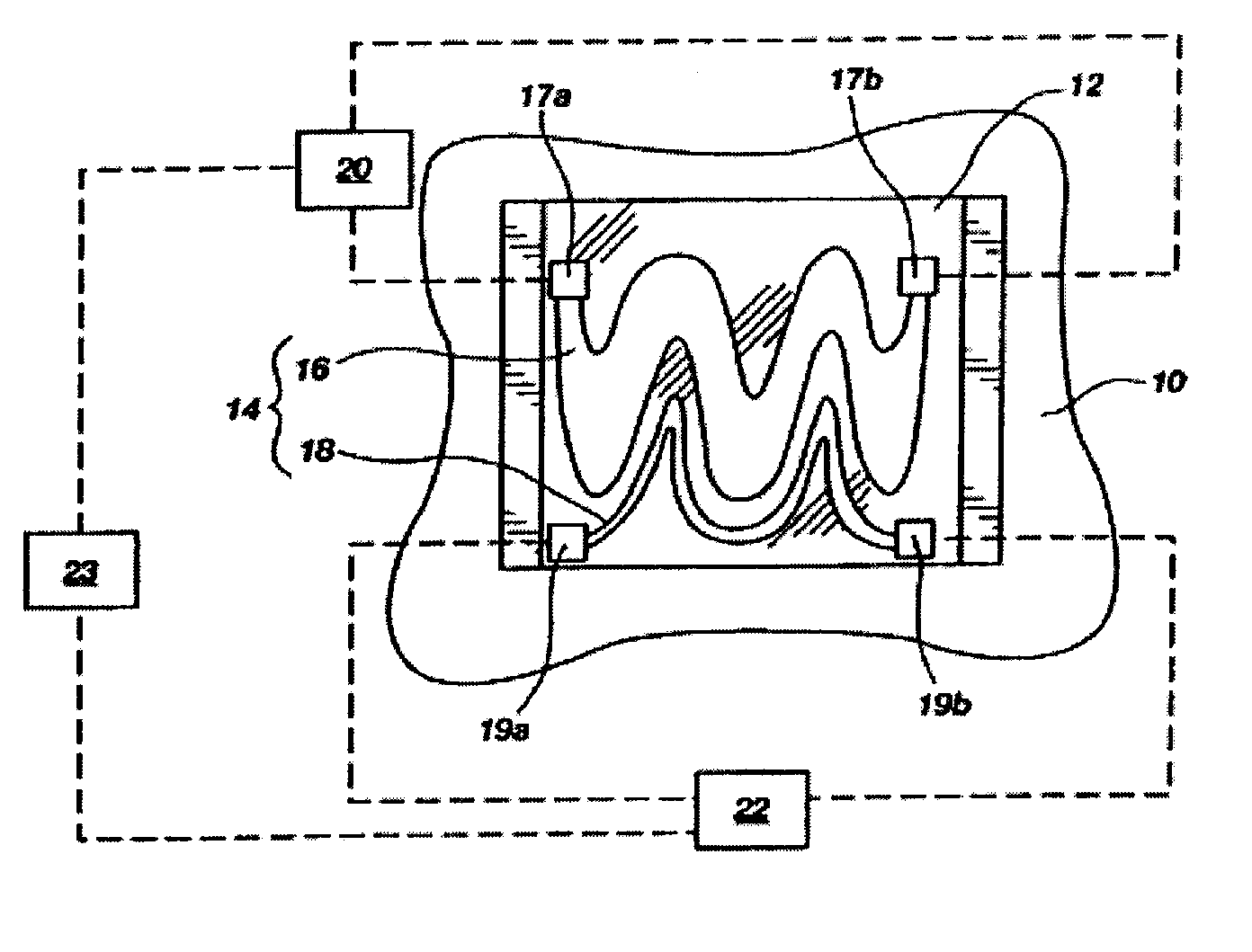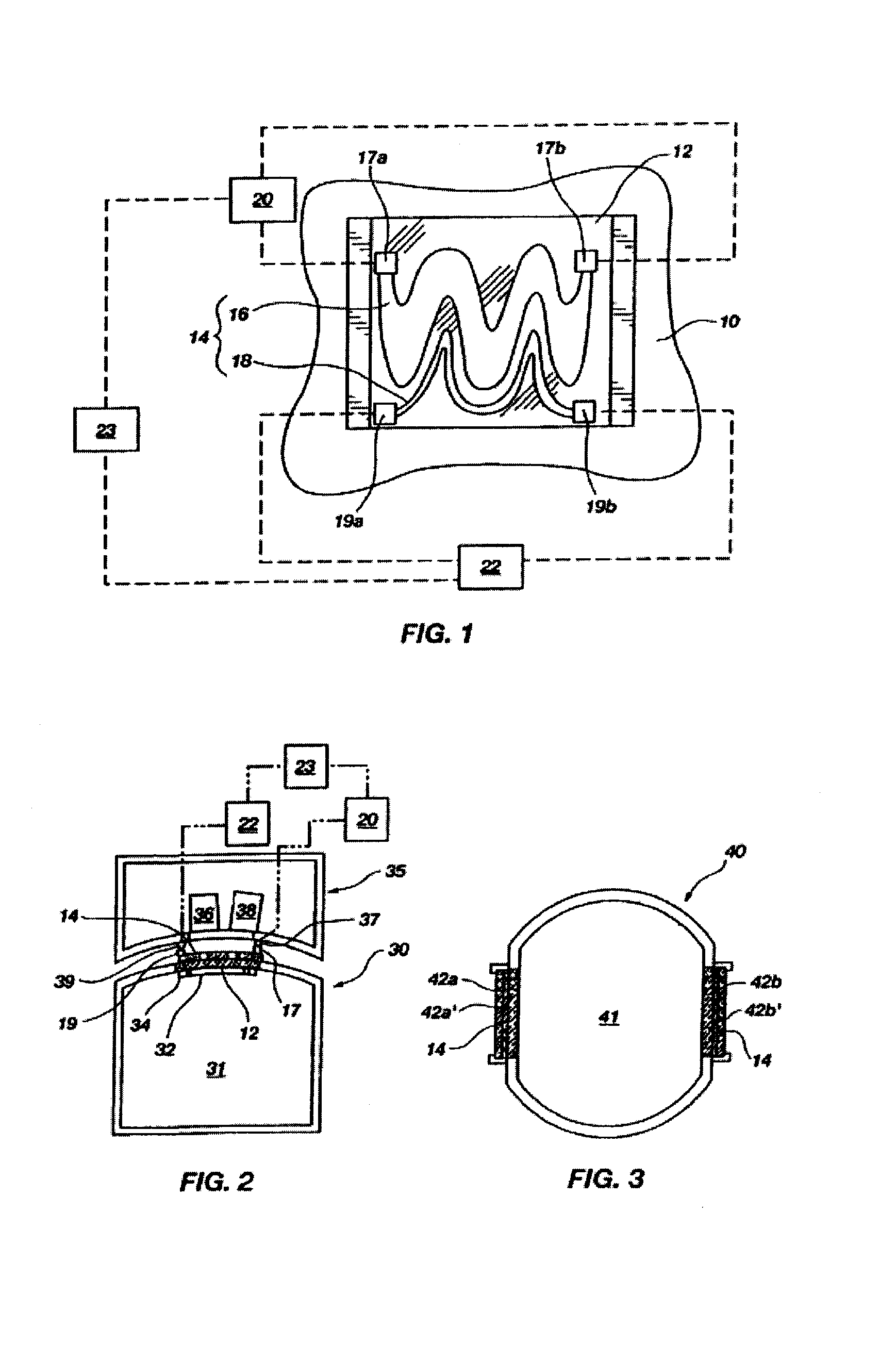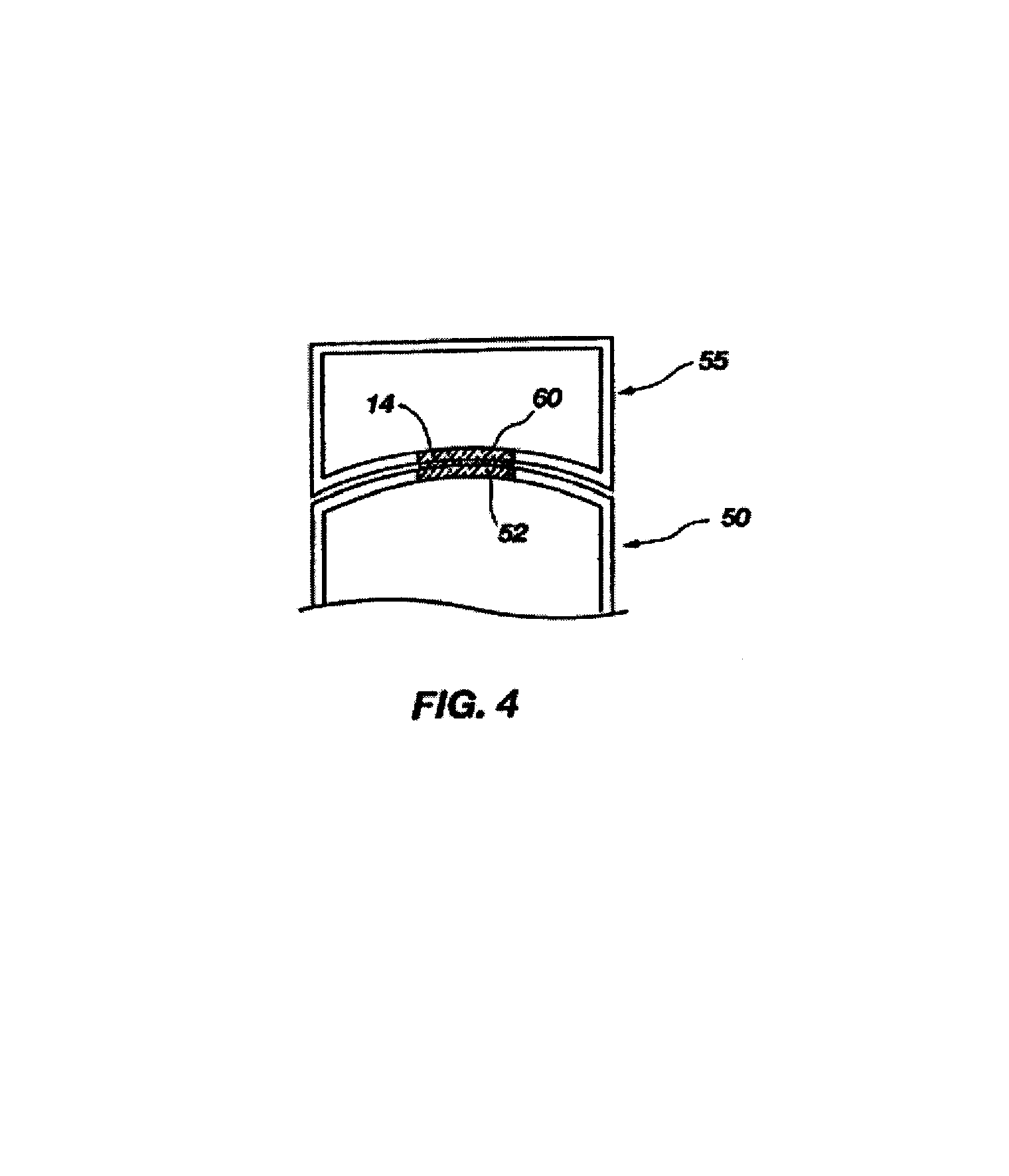Heater for optical gas sensor
a gas sensor and heater technology, applied in the direction of optical radiation measurement, instruments, specific gravity measurement, etc., can solve the problems of not being substantially transparent to the relevant wavelength, temperature-conducting elements may or may not be, etc., to achieve accurate determination of the amount of analyzed material, facilitate accurate measurement, and high transmissivity
- Summary
- Abstract
- Description
- Claims
- Application Information
AI Technical Summary
Benefits of technology
Problems solved by technology
Method used
Image
Examples
Embodiment Construction
[0043]With reference to FIG. 1, a window 12 of an optical gas sensor 10 is illustrated. A heater 14, which includes a heating element 16, is positioned over a portion of window 12, including over an optical path therethrough, which, in FIG. 1, is transverse to the plane of the page. Heater 14 also includes a temperature-conducting element 18 that extends over a portion of window 12. It will be understood by those of ordinary skill in the relevant art that heating element 16 may be utilized with or without temperature-conducting element 18.
[0044]Heating element 16 may be formed from a substantially transparent conductive material, such as a conductive metal oxide, e.g., tin oxide, indium tin oxide (ITO), antimony tin oxide (ATO), zinc oxide, indium zinc oxide (IZO), etc., cadmium sulfide, zinc oxyfluoride, platinum wire, or the like. Heating element 16 may have a resistance and a thickness that may be controlled as known to those of skill in the relevant art such that the heating ele...
PUM
| Property | Measurement | Unit |
|---|---|---|
| diameter | aaaaa | aaaaa |
| thickness | aaaaa | aaaaa |
| optical path | aaaaa | aaaaa |
Abstract
Description
Claims
Application Information
 Login to View More
Login to View More - R&D
- Intellectual Property
- Life Sciences
- Materials
- Tech Scout
- Unparalleled Data Quality
- Higher Quality Content
- 60% Fewer Hallucinations
Browse by: Latest US Patents, China's latest patents, Technical Efficacy Thesaurus, Application Domain, Technology Topic, Popular Technical Reports.
© 2025 PatSnap. All rights reserved.Legal|Privacy policy|Modern Slavery Act Transparency Statement|Sitemap|About US| Contact US: help@patsnap.com



